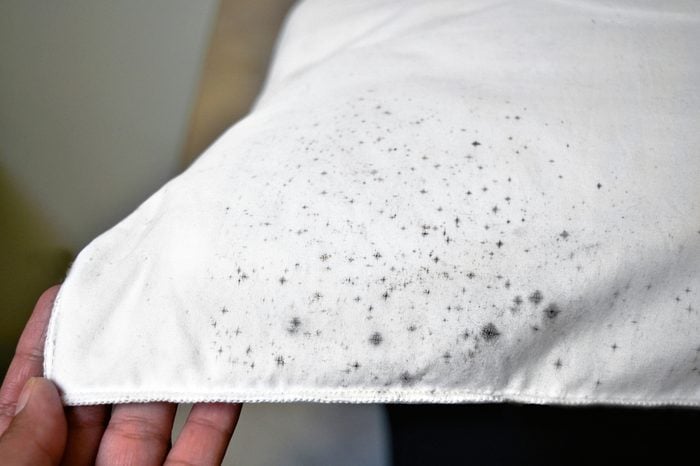
Your mattress might be to blame for your sleep woes
In an ideal world, you hopefully wake up from a night of sleep feeling well-rested and energized to take on the day. If instead you have aches and pains or feel like you barely got shut-eye, you may want to look at your mattress as the possible culprit. Although there are plenty of reasons why you can’t sleep, here are some ways an old mattress can mess with your sleep and your health.
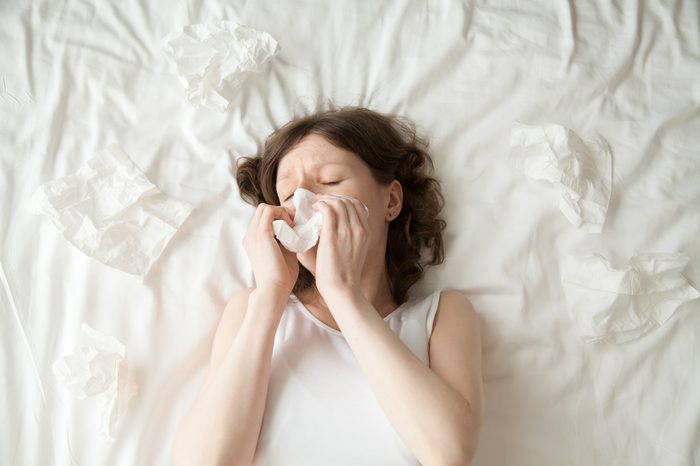
You could develop allergies from dust mites
Bill Fish, co-founder of tuck.com and a certified sleep coach, says that there is a chance dust mites could be an issue if you sleep on an old mattress. “Our goal should be to spend one-third of life on our mattress, as that means we are getting the recommended seven to nine hours of sleep on a nightly basis,” he says. “In doing so, however, our bodies give off dead skin and natural oils that can be appealing to dust mites.” Fish notes that dust mites could be an issue for any mattress, but the older the mattress, the greater the possibility of dust mites. These can be a real issue for people with allergies and asthma. John D. Ramirez Jr., DC RN DACNB, from the Florida Orthopaedic Institute in Tampa adds that these mites are also a potential hazard to people with skin conditions like eczema.

Your asthma could get worse
People suffering from dust allergies or allergic asthma could experience nasal congestion and airway breathing problems while sleeping on a dusty old mattress, according to Noah Siegel, MD, a board-certified sleep physician at Harvard and otolaryngologist. “Plain old asthma has what we call circadian rhythm, and it tends to work in the evening and the night,” Dr. Siegel says. “Then you add on top of environmental exposures related to the mattress and you kind of get insult to injury there.” Cynthia Bodkin, MD, an Indiana University Health neurologist and sleep medicine physician, adds that sleeping on an old mattress won’t directly cause nighttime asthma, but it could worsen symptoms for those who have the condition. (Check out these natural home remedies to help manage your asthma symptoms.)
You could have a mould issue
Your mattress becomes heavier over time as it collects dust, dead skin cells, and sweat. Dr. Siegel says that moisture issues from sweat could cause mould within a mattress, and thus potential allergies. “Mould is a possibility of something that, as the result of an old mattress, can potentially impact your breathing and your health,” Dr. Siegel says. “Mould is a difficult allergy to identify clearly, there are lots of different types, but somebody can be truly allergic to it, or they could be sensitive.”
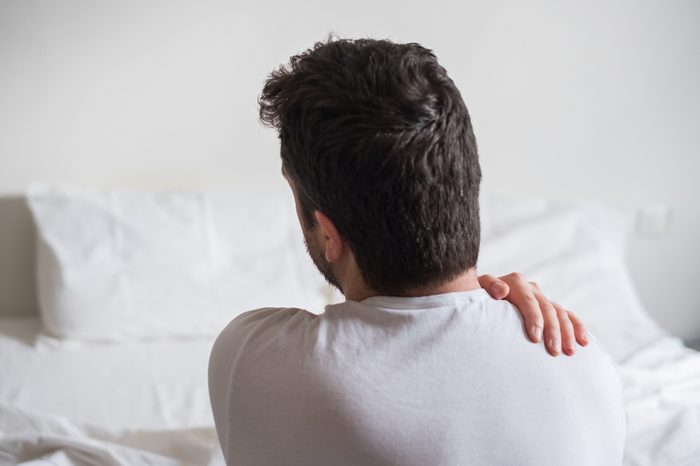
You could experience back or neck pain
“Neck and low back pain is a common complaint due to the lack of support from an old mattress,” says Todd Goldman, who has been a chiropractor for 22 years. Specifically, sleeping on an old and unsupportive mattress stresses the ligaments, tendons, and joints of the spine, Goldman says. As the mattress gets older, it will become softer and less supportive of the spine, adds Kavita Sharma, MD, a board-certified pain management physician with 10 years of experience treating patients in New York. This means that it will be more difficult to maintain proper posture at night. “Maintaining proper posture is helpful in mitigating lower back pain,” Dr. Sharma says. (These strength-training yoga moves are perfect for improving posture.)
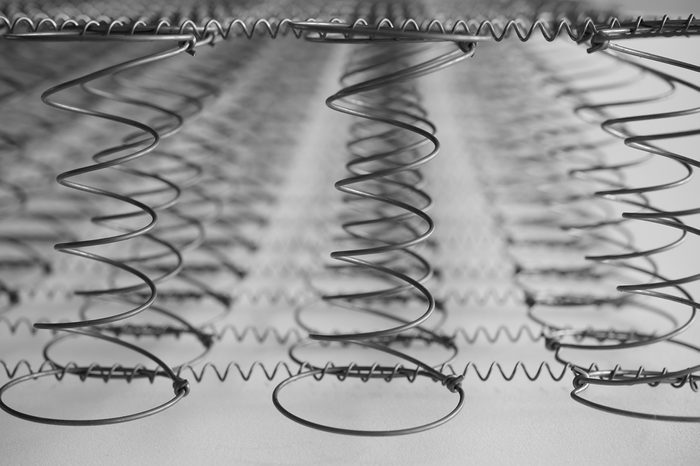
You could be more stressed
One study compared the sleep quality and stress-related symptoms between people sleeping in older beds versus newer ones. They found that new bedding systems increased sleep quality and reduced back discomfort—factors that could decrease stress-related symptoms. Similarly, stress and sleep are often interlinked. Stress keeps many adults from getting the sleep they need, and a lack of sleep could contribute to stress. So if your old mattress makes it hard for you to sleep, your stress levels could increase creating a cycle. (Also, did you know exercise is an effective way to relieve stress?)
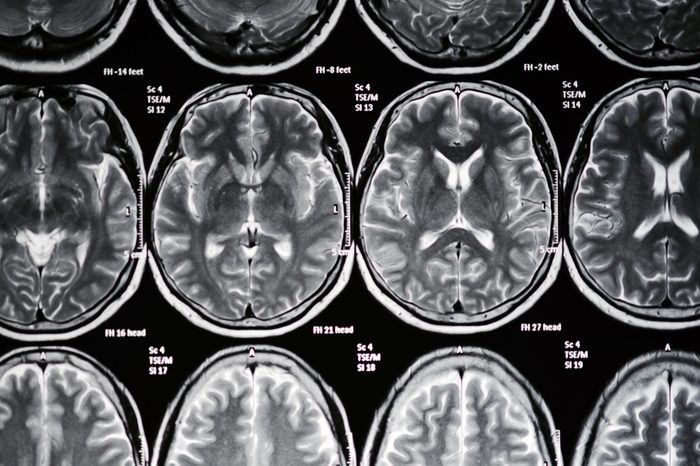
Your memory could suffer
If you have trouble sleeping on an old mattress your memory could also suffer. Dr. Siegel says one of the functions of sleep is memory consolidation. And if you’re uncomfortable at night due to an old mattress, that isn’t happening to the optimal extent. (Psst: Check out the memory strategies you’ll never forget.)
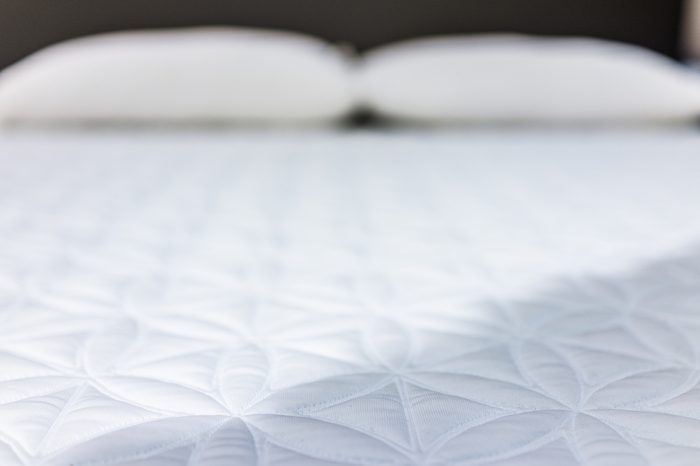
Bottom line, you could have less or poor-quality sleep—leading to numerous other health issues
According to Dr. Bodkin, poor sleep quality from any cause is associated with daytime sleepiness, trouble with concentration, heart disease, hypertension, stroke, diabetes, depression, and weight gain, just to name a few. Meanwhile, getting enough sleep has numerous health benefits including a boosted immunity system, type 2 diabetes prevention, and weight management. Dr. Siegel adds that sleep is time for your body to recover—so make sure you are comfortable. If an old mattress is cutting down on sleep time, it could be worth investing in a new one.
Next, check out the mattress more than 100,000 Canadians are sleeping on.
